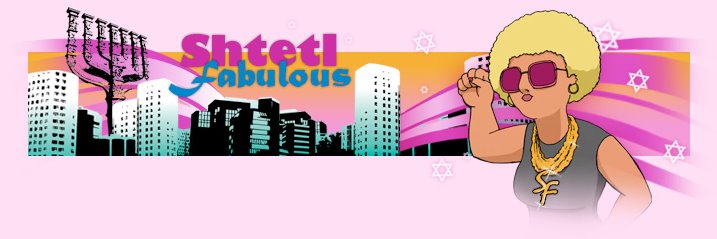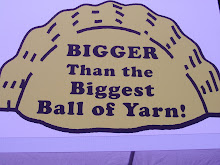So maybe you've been reading this blog since I began it (because I cajoled you or you're related to me), or maybe you stumbled upon it from a link or Google search (p.s. I'm the first hit you get - take THAT JewWatch), or maybe you actually found something I wrote remotely interesting and have stuck around. Regardless of the answer - thanks. In return, I thought I'd spend a little time on how the name for this blog (and my somewhat assumed identity) came about.
Most people have heard the term "ghetto fabulous." The African-American community has used this to describe a certain style of dress and attitude informed by the urban landscape to which they have historically been confined and elevated to a higher level with the addition of "bling," in the form of jewelry, cars, cribs, etc. Just like jazz music, hip hop and many popular cultural phenomena, ghetto fabulous represents a co-optation of an already co-opted term. The ghetto originally referred to city-based areas where Jews were confined in Eastern Europe. Today, ghetto fabulous has a derogatory undertone at times, but is also celebrated in song, fashion and style.
The counterpoint to the ghetto was the country-style shtetl. Since many Jews in America, post World War II live in the suburbs, it seemed fitting that describing a larger-than-life Jewish persona should only be called "shtetl fabulous." Makes sense, right?
The shtetl fabulous look has its own bling to be sure, but maybe it doesn't have to feature perfectly highlighted hair; pert, post-operative button noses; and a Long Islander accent. MAYBE, it could be something far less based in Philip Roth's shiksappeal fantasies... maybe it IS super curly, unstraightened brown hair; big noses; Naot-based sandal tan lines; big boobs and hips and this time a Brooklyn accent. However, my decision to call this blog Shtetl Fabulous, goes beyond the sartorial.
I have often identified with the African-American experience having grown up as a token Jew in heavily-Mormon Mesa, Arizona. I wasn't simply another type of Christian and I wasn't a clearly marked racial minority - I was "other." Being of a community and still not entirely belonging is often characteristic for many types of marginalized people, but somehow blackness spoke to me even though there were only 3 black students in my graduating class of 850.
I also think questioning, pushing the envelope and identifying with other oppressed people are big in the Jewish community and it's something we have in common with our black brothers and sisters. By using the term "shtetl fabulous," I hope to reference our Jewish history, engender a little discussion about labels, demonstrate some hardcore Jewish pride and make a few people smile.
Monday, October 8, 2007
Subscribe to:
Post Comments (Atom)


No comments:
Post a Comment